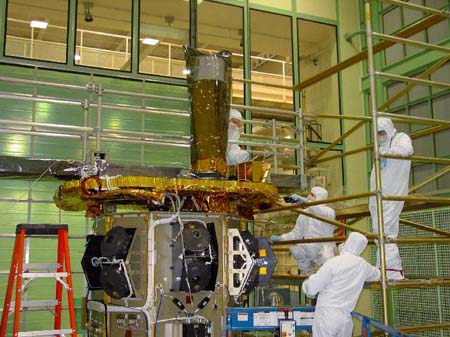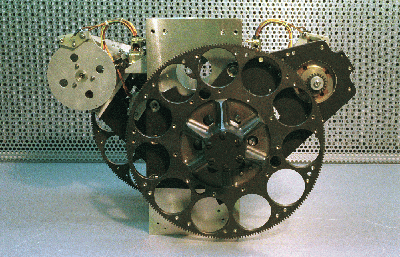UltraViolet/Optical Telescope
The UltraViolet/Optical Telescope (UVOT) is the second of Swift's two narrow-field instruments. As with the XRT, once the BAT detects a gamma-ray burst (GRB), the spacecraft slews to bring the new GRB into the UVOT's field-of-view.

Technicians install the UVOT system on the spacecraft. (Credit: NASA)
How it Works
The UVOT's design is based on the Optical Monitor aboard XMM-Newton. It is a 30-cm reflecting telescope. Optical and ultraviolet light entering the UVOT is directed to one of two redundant CCD detectors, each with an 11-position filter wheel. These filters consist of a blocked position for detector safety; a white light filter; a field magnifier; two grisms; U, B, and V filters; two broadband UV filters centered on 180 and 260 nm; and a narrow UV filter centered on 220 nm. These filters allow observations of spectra in the blue or UV band (using the grisms) and of different colors.

The UVOT filter wheels, with one in the front, one in the back. (Credit: NASA)
The UVOT further improves the BAT and XRT localizations, giving a position to 0.3 arcsecond accuracy. Upon acquiring the GRB, the UVOT performs a preprogrammed series of exposures and filter combinations. This program can be altered during Swift's mission to optimize the optical/UV observations. The filtered observations reveal the behavior of the burst and afterglow over time in different colors. In addition, if the burst is at a redshift greater than one, these observations may also provide redshift measurements.


